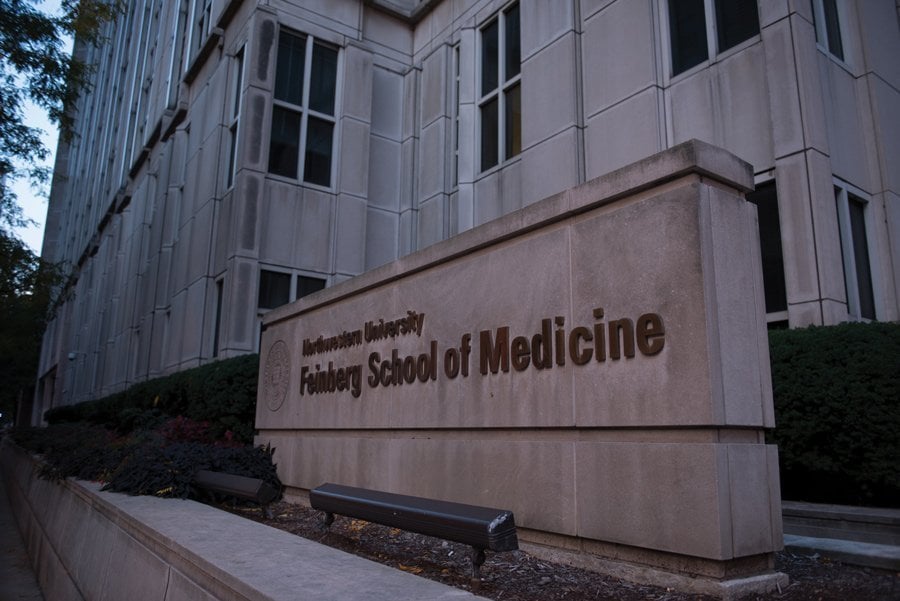Studies show COVID-19 vaccine has no effect on fertility, though fertility remains a concern among vaccine-hesitant
Daily file photo by Katie Pach
The Feinberg School of Medicine. Studies haven’t found the COVID-19 vaccine to have any effect on fertility or newborns’ health.
May 11, 2021
Clinical studies have not found the COVID-19 vaccine to affect fertility or the health of the newborns, according to a University release.
With the U.S. Food and Drug Administration’s recent authorization of the Pfizer-BioNTech vaccine for 12- to 15-year olds, researchers hope the findings will help reduce vaccine hesitancy, and combat vaccine myths spreading among parents, the release said.
Only 50 percent of parents have said they will vaccinate their newly eligible children, Feinberg Prof. Robert Murphy said in the release. This vaccination rate will likely increase as parents realize the benefits of vaccination with their children returning to in-person school, Murphy added.
“It will be somewhat of a challenge, but let’s face it: kids are the ones who get all the vaccines, so why are you going (to) hold this one back?” Murphy said. “This is the one (virus) that can kill your grandma. It doesn’t make sense to pick on this vaccine.”
The vaccine’s effect on fertility has been a prevailing concern among anti-vaccination groups, Murphy said.
While pregnant individuals were not allowed to participate in clinical studies of the COVID-19 vaccine, those who became pregnant during the course of study reported no issues at any stage in pregnancy, according to the release.
Their babies were also healthy and born with COVID-19 antibodies. These results, published in the New England Journal of Medicine in April, led the Centers for Disease Control and Prevention to change its guidelines for vaccinating pregnant people, the release said.
Email: [email protected]
Twitter: @maiapandey
Related Stories:
— Researchers find more favorable attitudes toward vaccination after J&J vaccine hold
— Students discuss uncertainty about vaccination requirements for Fall Quarter
— Fully vaccinated? What you can do, according to CDC and University guidelines


